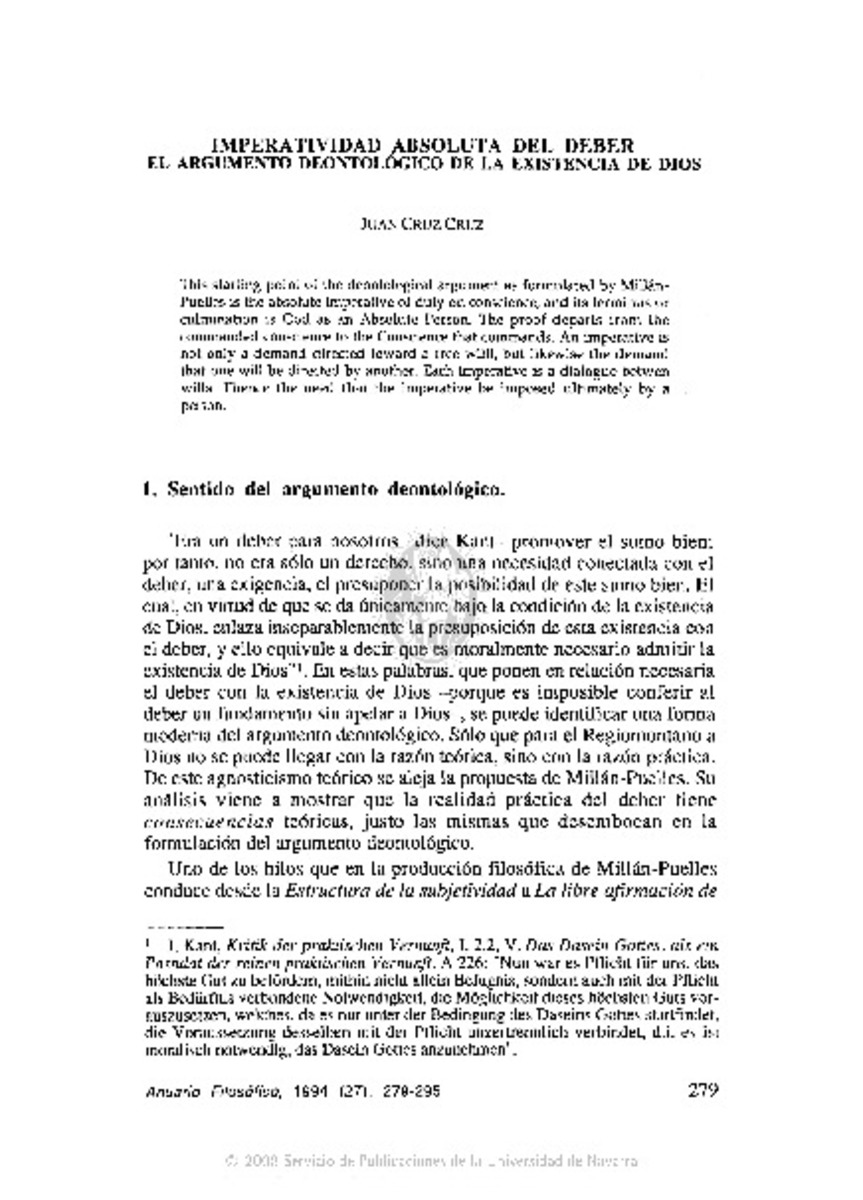Full metadata record
| DC Field | Value | Language |
|---|---|---|
| dc.creator | Cruz-Cruz, J. (Juan) | |
| dc.date.accessioned | 2009-02-18T12:02:00Z | - |
| dc.date.available | 2009-02-18T12:02:00Z | - |
| dc.date.issued | 1994 | - |
| dc.identifier.citation | Anuario Filosófico, 1994 (27), 279 - 295 | - |
| dc.identifier.uri | https://hdl.handle.net/10171/3298 | - |
| dc.description.abstract | This starting point of the deontological argument as formulated by Millán- Puelles is the absolute imperative of duty on conscience, and its terminus or culmination is God as an Absolute Person. The proof departs from the commanded conscience to the Conscience that commands. An imperative is not only a demand directed toward a free willl, but likewise the demand that one will be directed by another. Each imperative is a dialogue betwen wills. Thence the need that the imperative be imposed ultimately by a person. | es_ES |
| dc.language.iso | spa | es_ES |
| dc.rights | info:eu-repo/semantics/openAccess | es_ES |
| dc.rights | info:eu-repo/semantics/openAccess | es_ES |
| dc.subject | Millán-Puelles, Antonio | es_ES |
| dc.subject | Deberes | es_ES |
| dc.subject | Dios | es_ES |
| dc.subject | Deontología | - |
| dc.title | Imperatividad absoluta del deber. El argumento deontológico de la existencia de Dios | es_ES |
| dc.type | info:eu-repo/semantics/review | es_ES |
| dc.identifier.doi | 10.15581/009.27.29857 | es_ES |
Files in This Item:
Statistics and impact
Items in Dadun are protected by copyright, with all rights reserved, unless otherwise indicated.






